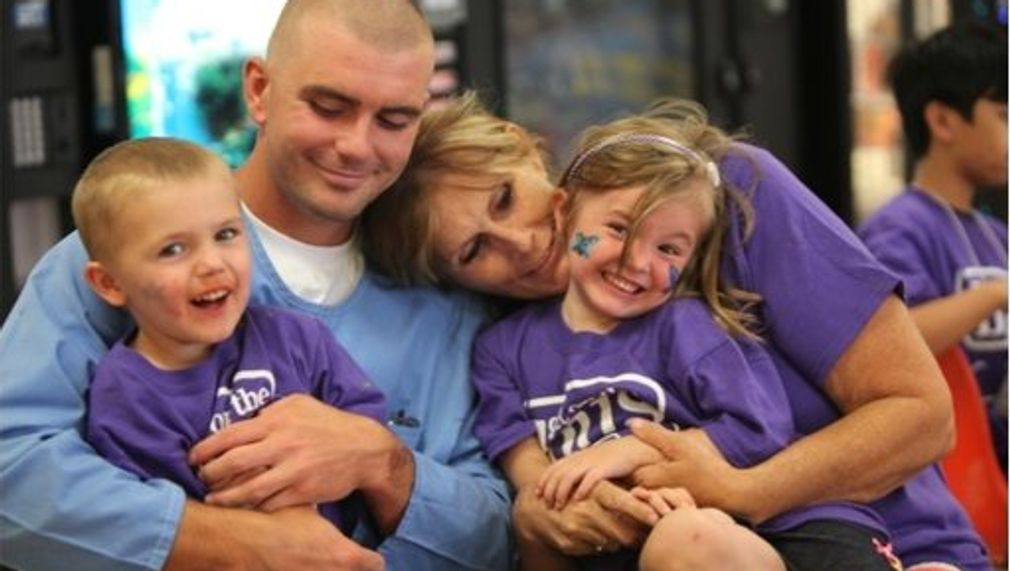Reunifying children with their incarcerated parents in prisons throughout California
Get On The Bus would like to expand our pilot Camp Suzanne restorative justice summer camp program for children and their incarcerated parents taking place inside prison walls. This weeklong camp was successfully piloted during the summer of 2015 for 12 children and their mothers at the Federal Correctional Institution-Dublin Facility. Our goal is to offer the camp to a greater number of children and add a much-needed art therapy component.

How do you plan to use these resources to make change?
Conduct research
Engage residents and stakeholders
Expand a pilot or a program
Mobilize for systems change
Advocate with policymakers and leaders
How will your proposal improve the following CREATE metrics?
Unemployment rates (and opportunities) for the formerly incarcerated (Dream Metric)
Describe in greater detail how you will make LA the best place to CREATE.
Get On The Bus CREATES a Los Angeles that fosters inclusivity and diversity through opportunities for children of the incarcerated. Through no fault of their own, the children we serve, often called “the silent victims of crime,” enter into a lifetime of challenges once their parents are incarcerated. Through healing opportunities like Camp Suzanne, we help build a better LA by caring for the children that need it most, while also contributing to better post-release outcomes and lower rates of recidivism for their incarcerated parents.
Today, there are more children in the United States who have an incarcerated parent than are diagnosed with autism or juvenile diabetes. Sadly, over 60% of mothers and fathers are sentenced to prisons more than 100 miles away from their families. In California, 60% of all female inmates are from Southern California, but a majority of women inmates are in prisons in Northern California, including the Central California Women's Facility in Chowchilla and Folsom Women’s Facility. Support from our organization goes far beyond transportation, allowing for truly transformative moments of healing between parent and child and impacting systematic change by CREATING a community of support for these children. Because our programs are built on community organizing and volunteers, our work extends an opportunity for all LA residents to help CREATE a brighter future for these “silent victims” and, as a result, a better future for LA through successful family reunification after incarceration.
A five-year study conducted by the Minnesota Department of Corrections found that offenders who were visited in prison were significantly less likely to return to prison, with a 13% decrease in felony reconvictions and a 25% decrease in re-incarceration on technical violations. The study also found that visits from family members, mentors and friends have the highest impact on lowering the recidivism rate, and that the more visits prisoners received, the lower their chance of re-offending after release. Investing in family relationships may be the best investment our society can make in CREATING a better Los Angeles by directly lowering post release crime rates and reforming the correctional system.
Please explain how you will evaluate your work.
Get On The Bus will measure the impact of Camp Suzanne quantitatively and qualitatively. Our quantitative data will include: Number of Children Served; Number of Mothers and Fathers participating; Number of Guardians participating; Number of Buses and Bus Teams; and Number of Volunteers. Qualitatively, we survey children, guardians, mothers and Local Area Teams to assess our strengths and weaknesses so that we can improve the program every year with analysis of the surveys.
We recently completed an extensive evaluation report titled "Examining the Impact of Re-Uniting Incarcerated Women with their Children." The 3 year report, funded by The California Endowment, was conducted by the Lloyd Society and led by Project Director Nina Messina, a UCLA evaluation expert working on correctional justice issues. We are utilizing this evaluation to improve the structure of Get On The Bus and will continue to work with the Lloyd Society in evaluating program progress and overall impact.
How can the LA2050 community and other stakeholders help your proposal succeed
Money (financial capital)
Volunteers/staff (human capital)
Publicity/awareness (social capital)
Infrastructure (building/space/vehicles, etc.)
Education/training
Technical infrastructure (computers, etc.)
Community outreach
Network/relationship support